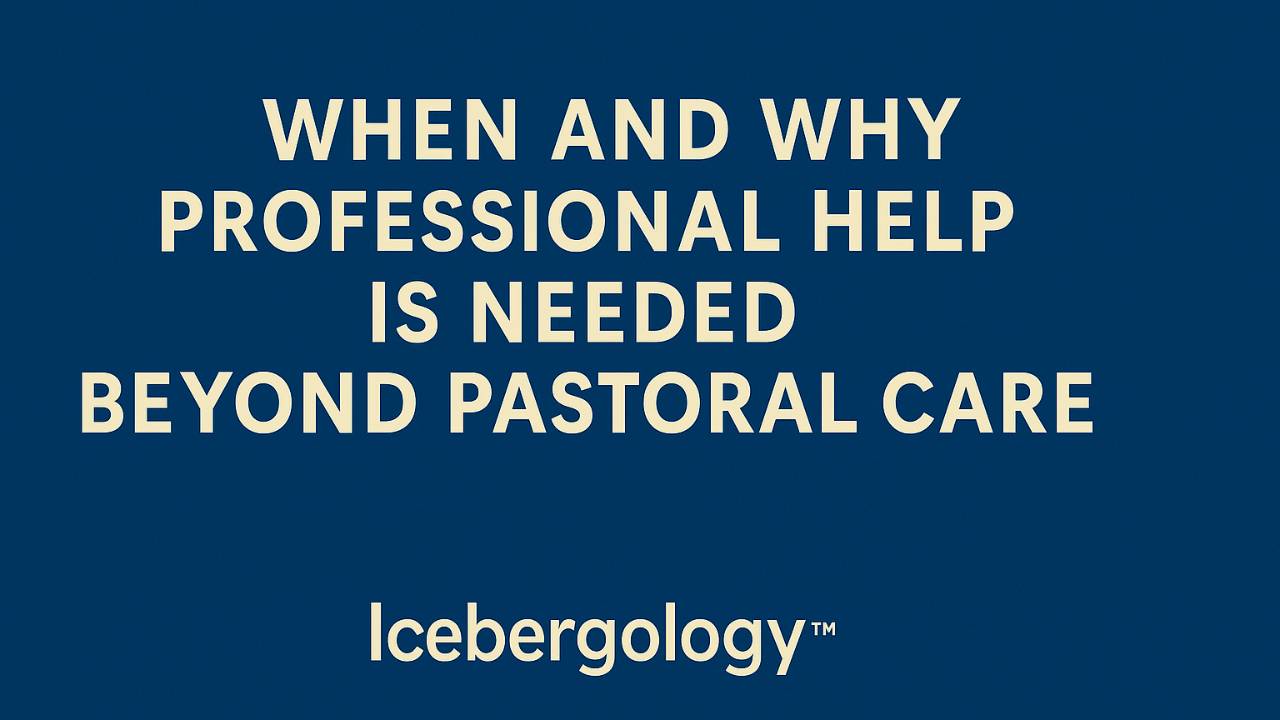When and Why Professional Help Is Needed Beyond Pastoral Care

Addiction and brokenness touch the whole person—heart, soul, mind, and body. Because of this, no single kind of care is sufficient on its own. Some believers assume they must choose between pastoral care or professional counseling, but that is a false choice. These forms of help are not at odds; they are complementary. Think of building a house: you need both an electrician and a plumber. Each has a distinct role, but together they create a safe and functional home.
Paul reminds us in 1 Corinthians 12 that the body of Christ has many members with different gifts. Each part is needed for health and wholeness. In the same way, different kinds of care serve the believer in recovery, working together toward healing under the headship of Christ.
The Role of Pastoral Care
Pastoral care shepherds the soul. A pastor or lay leader points people to God’s Word, prayer, and the Spirit’s transforming work. Pastoral care helps us confront sin, practice repentance, grow in discipleship, and walk in Christian community. Its focus is spiritual formation—aligning our hearts with Christ and pointing us to His saving grace.
The Role of Professional Care
Professional care addresses areas that require specialized training and treatment:
- Mental health diagnoses such as depression, panic disorder, OCD, PTSD, or bipolar disorder.
- Addiction treatment such as detox programs or relapse prevention strategies.
- Trauma recovery for those with complex histories of abuse or neglect.
- Medical management when psychiatric medication or neurological evaluation is appropriate.
Professional counselors and physicians work with the mind and body in ways pastors cannot. This is part of God’s common grace—His wisdom given through skilled helpers. But it is crucial that professional care be biblically sound: not excusing sin, not undermining God’s Word, and not promoting unbiblical solutions. Professional care that contradicts Christian faith only deepens the struggle. Ideally, professionals either share the believer’s Christian worldview or at least honor it with respect.
When to Seek Professional Help
Pastoral care is always needed, but professional help should be sought when:
- Safety concerns exist—suicidal thoughts, self-harm, or violence.
- Medical complications are present—substance detox, eating disorders, neurological conditions.
- Unresolved trauma continues to drive destructive behaviors.
- Persistent mental health struggles do not improve with discipleship and spiritual support.
- Family systems issues involve patterns of abuse, estrangement, or severe dysfunction.
Pastoral care alone may not address trauma or medical needs, while professional care alone cannot provide the gospel-centered hope of Christ. Together, they meet the needs of the whole person.
Working Together for Wholeness
The healthiest approach is integration. Pastoral care shepherds the soul; professional care restores the mind and body. Both are needed for the whole person to heal. Pastoral care points to Christ’s saving grace; professional care, when biblically sound, reflects God’s common grace through skillful help.
“Pastoral care shepherds the soul; professional care restores the mind and body. Together, they build recovery’s foundation.”
Final Word
Addiction and brokenness require both gospel-centered discipleship and biblically faithful professional care. These are not rivals but allies. When pastoral and professional helpers work together, believers experience both God’s saving grace through Christ and His common grace through skilled helpers—two streams flowing toward one goal: wholeness in Him.
